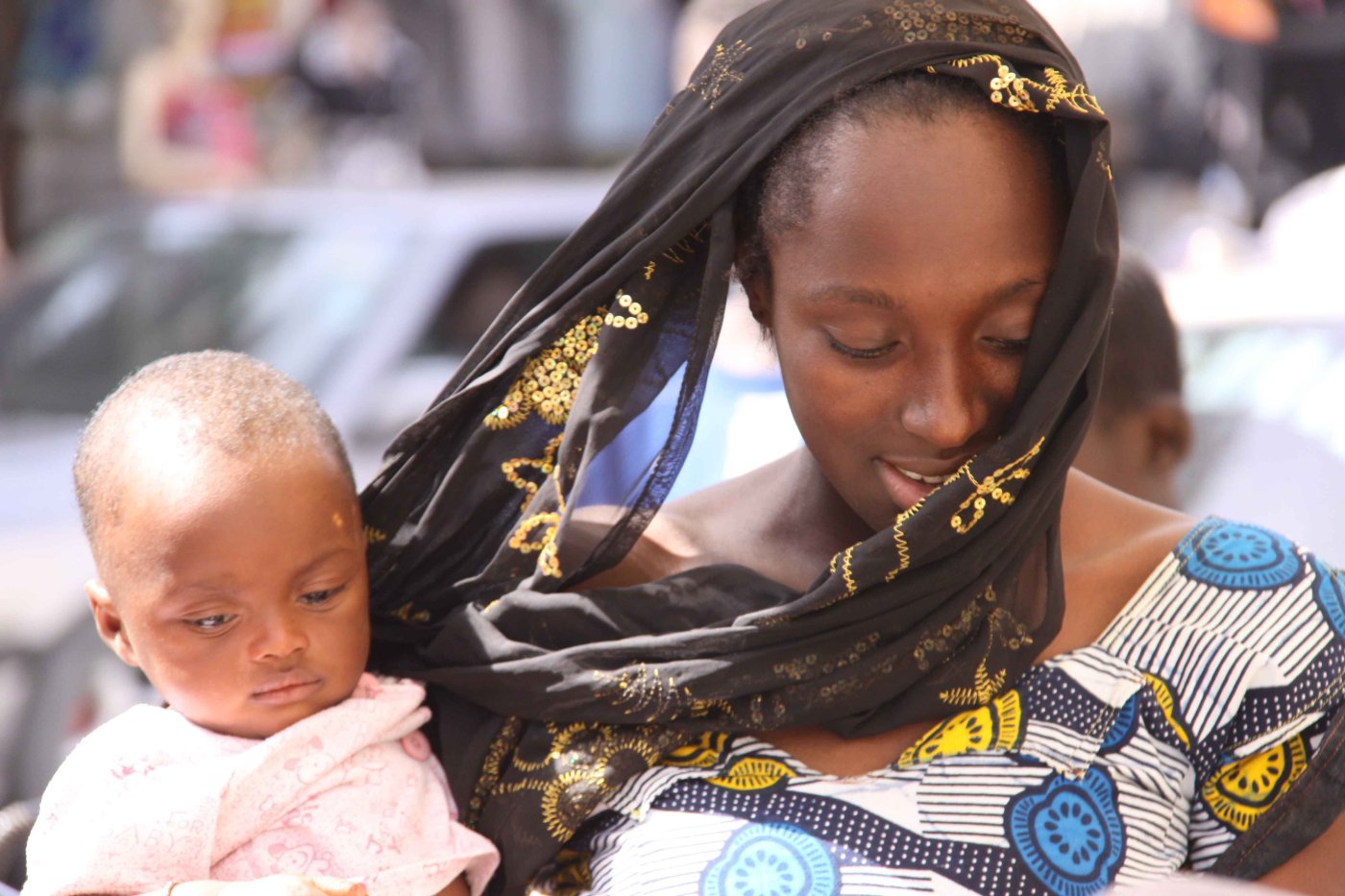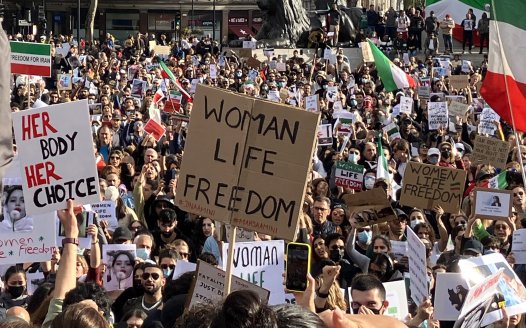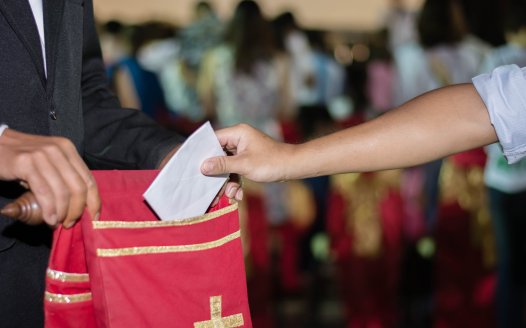What secularism means for African women’s rights and citizenship
Posted: Thu, 8th Mar 2018 by Dr Fatou Sow
In a long read for International Women's Day, Dr Fatou Sow says secularism is a feminist issue and reflects on its particular importance to women in Africa.
I join this conversation as an academic researcher in sociology and an activist, as the Director of Women Living Under Muslim Laws (WLUML) and a member of several women and civil society organisations. In both roles, I use a feminist critique to understand and analyse the status of African women in the past, present and future.
Secularism has been a critical issue for women's organisations and women's human rights defenders. Women's rights and citizenship start in the family. In societies with predominantly Muslim populations, however, it has been difficult to set up a body of family laws encompassing all citizens regardless of their faith because this is seen as contradicting Sharia 'law'.
I am here to say that secularism is an issue for women, as stated by Marieme Helie Lucas, founder of Secularism is a Women's issue (SIAWI). Women's movements are part of the debate on secularism, as religion and culture shape women's status and rights.
Secularism or laïcité today
As a concept, secularism is rooted in various historical contexts that make it difficult to define it properly without taking history into account. We generally agree that secularism relates to politics and religion, but the experiences of secularism and secularisation might differ from one context to the other. We can draw examples from European countries that, although they claim to share the same Christian culture, have different perspectives on secularism.
I would like to define French secularism, or laïcité, because Senegal and many former French colonies in West and Central Africa have inscribed laïcité as a basic principle in their constitutions. Without a doubt, laïcité refers to the separation of politics from religion. The concept of laïcité arose from French history. The secularisation process in France since the French Revolution was "an emancipation movement confronted with a church that the tumultuous history of France had made into a hegemonic (even monopolistic) institution in the universe of symbols". The church was at the heart of political power in monarchical France — it consecrated the crowning of the kings of France.
The French Revolution abolished the monarchy. Secularism was established as a political measure with the Law of 1905 that enshrined the separation of church and state. A new government was set up where "the Republican State, as an emanation of the democratic ideal, had as its ambition the replacement of the all-embracing function of the Catholic Church in its temporal capacity" (Bencheikh 2005: 113). It did not exclude religion, but proclaimed the separation of the state and religion. In France itself, there is a difference between laïcité and the process of laicisation or secularisation. French laïcité would be, in fact, "the political product of a historical secularisation process". Secularisation has also been linked to the modernisation of societies.
For me, secularism mainly refers to the religious neutrality of the state in the management of the country and its politics. Laws passed in parliament in secular states should not avert or stifle free debate on societal issues by referencing "holy" principles. In most African countries, including in North African countries where Islam is a state religion, there are different ethnicities, cultures and faiths. Whenever a law is passed that is based on the principles of a leading ethnic group, culture or faith, it will inevitably marginalise or exclude minority groups.
The intervention of religion in politics is an important challenge. Most of our states establish a separation of powers in order to prevent one power—executive, judicial or legislative—from exercising the core functions of another. The current rise of religious fundamentalism, however, has impacted this balance of power. For instance, in Senegal people have started to refer to religious leaders as constituting a symbolic "fourth power". Religious figures have become increasingly involved in political debates and relied upon as political intermediaries. In the nineties, cardinals and archbishops led national conferences and peace talks in Central Africa.
When Mali became divided by sectarianism in 2012, Imam Mahmoud Dicko, Head of the Haut Conseil Islamique du Mali, proposed to be an intermediary during the political negotiations between the state and separatist Northern Mali movements. Yet Dicko was also the radical Muslim leader who led popular riots to force former Malian President Toumani Touré to ban the progressive family code that was passed by Parliament in 2008. The Economic Community of West African States (ECOWAS) is currently seeking the support of religious leaders to support peace talks in Guinea Bissau, which is plagued by chronic political instability.
In Senegal we have also seen a gradual erosion of laicité. Senegal's first President, Leopold Sedar Senghor, was a Christian elected by a local constituency including a large part of the peasantry that was predominantly Muslim. There was a separation of the state and the mosque, although Senghor maintained relationships of domination and collaboration with the leaders of Senegal's Muslim Brotherhood. President Diouf who succeeded him was not as strong a president, so he had to negotiate and share power with religious leaders. Then in 2000, President Abdoulaye Wade brought religious figures into greater political power when, after the very first democratic transfer of power in Senegalese electoral history, he went to his Marabout and thanked him for his prayers on national television.
Lastly, secularisation has been described as a way to modernity in the West. As Africans, can we claim that Westernisation is the sole path to modernisation?
Religion, culture and politics
While women's movements in Africa have tried to promote new social contracts that advance social justice and gender equality, they have faced continual backlash by those who seek to revive religious and cultural values that hold women back. While secularisation of the law has helped to promote women's rights, especially after 30 years of major international summits and accords on women, the environment, human rights, populations and more, these achievements continue to be challenged by a large number of ordinary people and fundamentalist groups.
State and religious authorities across Africa maintain close ties. This mingling of religion and politics has become evident in public debates around sexual freedom, contraception, abortion, AIDS prevention, sexual orientation, same-sex parenting and bioethics (euthanasia, medically assisted conception, genetic testing, cloning, stem cell research, etc.). These questions pose moral challenges to individuals' identity and religion.
They also illustrate the interplay between religion, culture and politics, including the:
- acculturalisation of religion, which I understand to be the cultural dimension of religion, or various practices that are cultural and not religious, such as female genital mutilation, banning women from driving, or wearing a burqa;
- religionising of culture, or when culture is used in the same way as religion to define identity; and the
- religionising of politics, which I take from Karima Bennoune, an American– Algerian political scientist, who uses this term to explain the use of religion for political purposes.
Karima Bennoune, a Law Professor at the University of California, Berkeley, described the religionising of politics in her analysis of US President Barack Obama's first visit to Cairo:
"In his celebrated 2009 Cairo speech, US President Obama laudably aimed to reach out a much-needed hand of friendship to Muslim-majority societies across the globe. However, his embrace of a confessional worldview in that address was worrying. Speaking to those gathered at Cairo University, the President focused not on citizenship, or national or regional identities, but solely on presumed religious identities, thereby casting Muslims as a sort of monolithic bloc of people who are defined by their religious belief. In addition, he repeatedly quoted from religious texts. This article asks how using such a religious lexicon in political discourse affects the separation of religion and state. It also argues that religionising politics unwittingly plays into the hands of fundamentalists."
Increased religious radicalism among all faiths is reshaping the relationship between religion and politics. Religious groups are being imbued with a "mission" to lead society and to transform social contracts, which is based on a very specific view of the sacred and which may diverge from the original interpretation of their religion. Many of these religious groups want to impose a society that is completely based on conservative religious norms, which they themselves define.
Secularism and women's rights
Secularism does not transform the gendered nature of religions. But it has to address it. In the birth of modern nation states, religion went out of the public sphere, but it never left the personal and individual sphere. It remained in the realm of family, of communities and of religious institutions, which are constantly the basis for creating and recreating political power.
Religious institutions often provide spaces and social networks that the secular state has not been able to provide. In Muslim societies, brotherhoods and dahiras (faith-based organisations where women organise religious events) offer a space for communities to help each other and collaborate. As a result, there is a false division between the public sphere and the private domain. Compounding this dynamic is the critical role religious institutions have played and still play in the provision of health and educational services throughout Africa.
Also, some countries have carved out space in the law for the imposition of religious dictates concerning the family, which impacts women's rights the most. Laws that recognise men as head of the family, that protect the indissolubility of marriage as a sacrament or that do not recognise the rights of children born outside of wedlock are all based on patriarchal religious rules that are shared among Abrahamic faiths (Judaism, Christianity and Islam).
Allowing religious principles to dictate family laws often means reinforcing gender inequality and control over women's bodies
Sharia 'law' is considered fundamental for many Muslims, even though there are variations of Sharia that communities create themselves. Sharia regulates prayer, fasting, marriage, divorce, widowhood and the laws of inheritance. It includes a dress code as well as other codes of conduct. Sharia is at the centre of current debates on Islam, secularism and modernity.
Muslims, whether fundamentalist or not, have always insisted on respect for Islamic values in managing male and female relations within the family. Niger and Chad do not yet have secular family codes because of their adherence to Sharia 'law'. The majority of Muslim countries continue to elaborate and revise their family codes in an effort to reconcile their interpretation of Sharia with reforms to modernise the law. Political leaders typically take many precautions not to hurt the spirit of the Quran.
Senegal was the first Muslim sub-Saharan African country to have implemented a secular code that applied to all communities in 1973. But this code leaves room for interpretation by citizens on many civil and religious matters. This has led to conflicts between the state and Muslim organisations that want to impose a literal interpretation of the Quran on society. Family laws are often at the centre of these political controversies. For instance, efforts to end polygamy, address gender inequality in inheritances, and other matters affecting women's rights run up against the need to respect Sharia 'law'. Thus, in Senegal and elsewhere, there are legal provisions drawn or inspired by Sharia that have institutionalised gender inequality in state constitutions and in social codes that uphold traditionalist views about the sexual, matrimonial and social behaviour of women.
Yet women's rights activists and supporters of Sharia disagree about the existence of gender inequality and discrimination. For Sharia supporters, gender inequality is not at issue, because all believers (men and women) are allegedly equal before God with no intercessors. However, in the famous verse 34 of Sura 4, the Quran emphasises: "men are the protectors and maintainers of women, because God has given the one more (strength) than the other; and because they support them from their means. Therefore, the righteous women are devoutly obedient to their guard." So if the husband is the guard of the spouse, how can she control her body, sexuality and fertility? This notion is what guarantees the power of men over women in Muslim countries.
This divergence of views is why supporters of Sharia have resisted recognising questions of discrimination raised by the Convention on the Elimination of all Forms of Discrimination against Women (CEDAW). They have expressed reservations over issues of gender equality before the law or over nationality, marriage, divorce and inheritance issues.
At the United Nations and other international forums, religious fundamentalists have contested efforts to address gender discrimination. Religious figures from the Vatican, as well as Mullahs from Iran, Saudi Arabia, Sudan and elsewhere attend international conferences on human rights to assert their views. And often, they weigh in on and influence decisions in women's conferences, with the complicity or indifference of state actors. The United States has also been complicit in allowing religious actors to dictate foreign policy, as the Bush administration did with the imposition of the global gag rule.
In March 2009, the UN Human Rights Council once again passed a resolution, urging member states to put laws in place to prevent criticism of religion, specifically mentioning Islam. Members of the Human Rights Council voted 23 in favour of the resolution, while 11 nations opposed it and 13 countries abstained from voting. This vote had a profound impact on the ability of women's organisations to contest the imposition of religious laws in Muslim countries. The resolution can now "be used to silence progressive voices who criticise laws and customs that are based on religious texts and precepts" (WLUML, 2009).
In light of these developments, we have to raise the questions: What does religion, culture and politics have to do with my body and isn't my body mine? It is very important to promote a human rights approach in which citizens, and women in particular, can be involved in decisions and policies about their bodies. We cannot let patriarchal bodies continue to dictate women's health and rights.
At the international level, most African states have signed and ratified international human rights treaties (although the United States has not). Thus we can cite the International Covenant on Civil and Political Rights; the African Charter of Human and People's Rights; the International Covenant on Economic, Social and Cultural Rights; the Convention on Elimination of all Forms of Discriminations against Women; the Optional Protocol and the Convention on the Rights of the Child to advance and support women's rights on the continent. Most African states also ratified the Protocol to the African Charter on Human and Peoples' Rights on the Rights of Women. They drew plans of action from international conferences, such as the World Conference on Human Rights in Vienna, the International Conference on Population and Development in Cairo, the Women's protocols of Beijing and others, into national programs or policies. In theory, international laws have precedence over national laws.
However, it is difficult to enforce most international treaties and bring about gender justice in the law due to opposition by domestic leaders, such as parliamentarians, and societies themselves. Thus, we must advance debate on these questions—and address resistance by religious groups—to establish truly secular states that can protect gender equality in Africa.
This article was originally published as part of What Secularism Means to Africa: What it has been, what it hasn't been and what it could mean for human rights, a conference coordinated by Catholics for Choice and the Global Interfaith and Secular Alliance. It is reproduced here with kind permission.
Image from Dakar © Vincenzo Fotoguru Iaconianni, via Wikimedia Commons [CC 2.5]
Share your story
Secularism isn't just about moral or theoretical arguments, it's about people's real lives. Telling your story can help our campaigns and others in similar situations.








